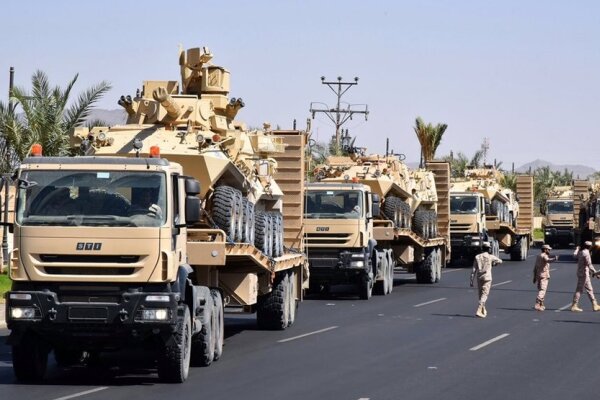Speaking in an interview with the website of the Strategic Council on Foreign Relations, Sabah Zanganeh said: The crimes that Saudi Arabia and the UAE committed in Yemen over the past years are widespread and catastrophic crimes, exposing millions of people to death and disease.
He continued: Issues related to Yemen are so complex and criminal that Western countries, one after another, are reconsidering their aid to the Arab coalition and are renouncing the countries that have committed the crimes.
Zanganeh believes that the political atmosphere in which such statements are made is the atmosphere in which Joe Biden has taken the lead; he has stated that from now on, the United States is no longer willing to sell arms to Saudi Arabia and help them, and that Saudi Arabia must be held accountable for its crimes.
He said: When the United States took the initiative in this regard, some Western countries also found the right atmosphere to follow the same path themselves and stop their aid to Riyadh.
Explaining the reasons for US President Joe Biden’s decision to suspend arms sales to Saudi Arabia, Zanganeh said: Various US institutions have had sporadic protests over Donald Trump’s outspoken support for Saudi Arabia. In addition to Democrats, some Republican senators also objected to Trump’s decisions. At the same time, various human rights organizations, political groups and think tanks provided horrific images of the Yemeni war, and as a result of which, the groundwork for this decision was being prepared under Trump.
Stressing that it seems in the Biden presidency he is after moderating the atmosphere of the region, he said: Therefore Biden is determined to have a serious and fundamental review of the absolute support for bin Salman, because otherwise the US may lose its influence and role in the entire region and in countries such as Yemen, Iraq, Syria and Lebanon it is faced with many threats and harms.
Zanganeh continued: These threats and harms are no longer tolerable for the United States and may extend to the occupied territories; therefore, following observing such issues Washington decided to change its policy towards Saudi Arabia.
Zanganeh, referring to the fact that the possibility of Western perceptions will be changes in Saudi Arabia, he noted: therefore those countries decided that from now on their names not to be included in the list of supporters of Muhammad bin Salman.
The expert, saying that one or two European countries may try to follow a relatively opposite path, continued: If this decision is made by some Western countries, such as France, it will be in order to blackmail Saudi Arabia.
He added: France may claim to take positions other than those of the United States with regard to the Yemeni-Saudi war, but in fact the Elysee wants to blackmail Abu Dhabi and Riyadh.
The expert on the Middle East affairs referred to the differences among the EU countries in some areas and said: For example, there are differences between France and Italy over Libya, and this difference is evident in other positions of these countries.
Also, in reply to a question that what scenarios the issue of Yemen will be faced with during Biden’s presidency, he said: It seems that the Yemeni war will end in the near future, because the war that Saudi Arabia started in Yemen is becoming a serious threat to Riyadh and that is why the Saudi allies in the West are trying that this whirlpool does not destroy the entire sovereignty of Saudi Arabia and the UAE.
Regarding Iran’s view of those issues, he said: No doubt, the Islamic Republic of Iran welcomes the fact that the situation in Yemen comes out of the state of the war, massacre and destruction so that the Yemeni people can manage their own affairs.










0 Comments